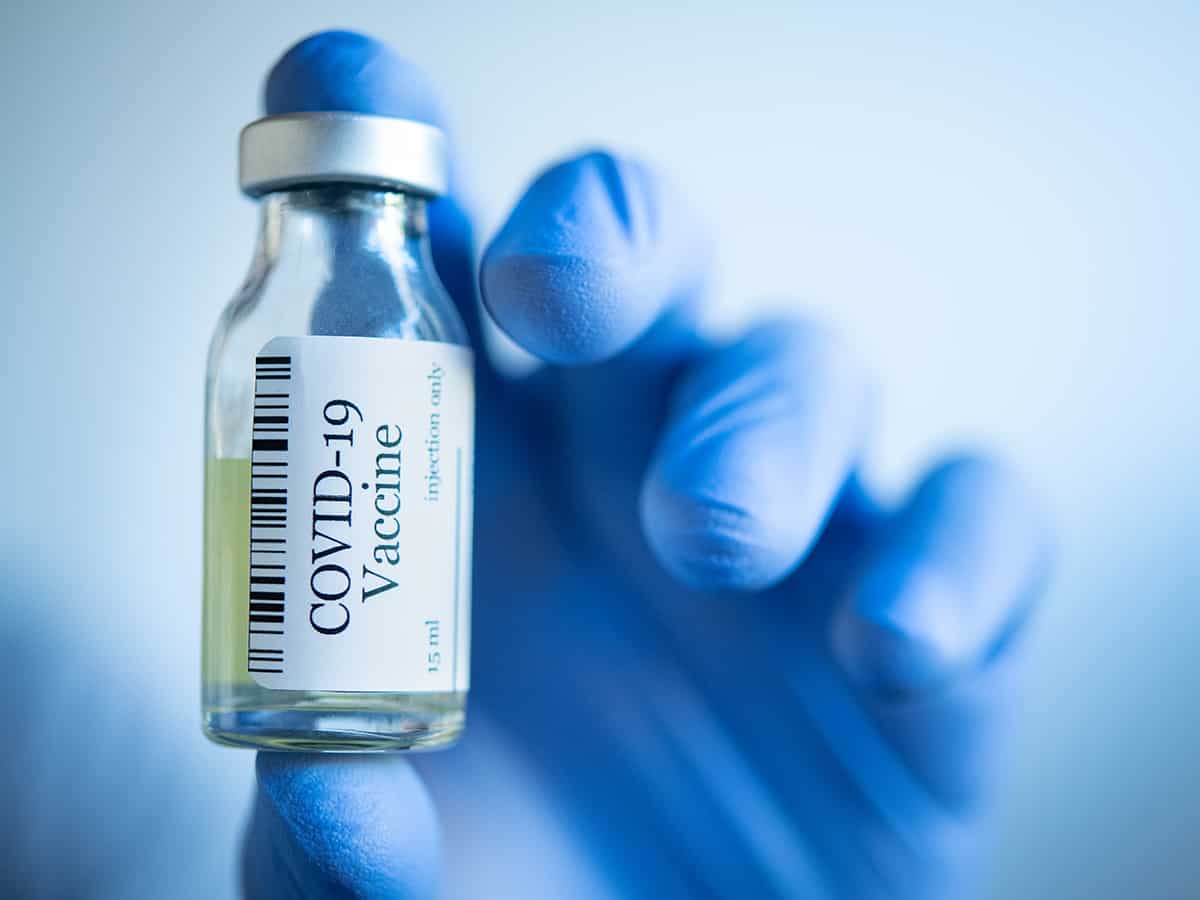
Hyderabad: Which one would you prefer–A jab that can be slightly painful or a drop that smoothly passes through the nose? While, the injection based vaccine to provide protection against COVID-19 has arrived to fight the pandemic, the nasal spray type is in the trials stage.
Two new technology derived vaccines, developed through the mRNA (messenger ribonuclease acid) route from Pfizer &/BioNTech, Germany and Moderna Inc., USA and at least three from the traditional types based on live accentuated virus from Oxford-Astra Zeneca- Serum Institute of India (SII), Pune, Sputnik V from Russia and COVAXIN from Bharat Biotech & National Institute of Virology (NIV), Pune are now available.
The mRNA vaccines are expensive, need cold storage of minus 70 degrees C and mostly used in the UK, US, EU nations. The others are finding wider acceptance in China, India, Brazil and densely populated poorer nations. They are comparatively affordable and need normal refrigeration temperatures. India has exported to a dozen nations already, even while expanding its own national vaccination programmes.
The challenge here is to give two injections in a gap of just over a month and most often requires skilled healthcare personnel to administer them. But, in a remarkable global effort, these vaccines have been developed in just over a year’s time, since COVID-19 began its rapid spread and virtually engulfed the entire world.
Nasal Vaccine Development
If India has been at the forefront of both development and manufacturing of the COVID-19 vaccines of the traditional types, it is preparing to and has potential to collaborate in making the mRNA ones too for global consumption in future. The SII is the world’s biggest maker of vaccines now.
While, the world awaits with bated breath the results of the protection provided by these vaccines, which are being given since mid- December, 2020, effort on developing nasal spray vaccines too is gaining momentum.
Bharat Biotech had in September inked a licensing agreement with Washington University School of Medicine in St. Louis for a novel chimp-adenovirus, single dose intranasal vaccine for COVID-19. The company owns the rights to distribute the vaccine in all markets except USA, Japan and Europe.
The Vaccine maker has already brought to the market COVAXIN, which attracted criticism from some experts who pointed to “Premature regulatory nod, without adequate results from phase 3 trials’. It has got ‘Emergency Authorisation’ nod, is being administered to frontline workers in India as well as being exported to some countries.
In the case of the nasal spray vaccine, which can be taken through the nose in a easier dose form, Bharat Biotech has got the regulatory approval to go ahead with trials in the country recently.
In recognition of its contributions, Bharat Biotech has been chosen to receive the ‘Genome Valley Excellence Award’ at BioAsia -2021 on February 22 that is tomorrow. It’s recognition for ‘pioneering research, development and commercialisation of vaccines, including COVAXIN for COVID- 19’, an official releases stated.
The Nasal Vaccines advantage
A nasal vaccine will be non-invasive, no needles, easy to administer with little training and scalable in manufacturing. Like a Polio drop, it can be given to both children and the aged easily and in rural areas too.
Scientists are pinning high hopes on the efficacy of nasal vaccines because the novel Corona virus that has caused havoc enters the patient through the nose. A nasal spray vaccine for seasonal flu already exists, so this type of vaccination has been proven to be effective.
According to Bharat Biotech, the Phase I trials will take place in Saint Louis University’s Vaccine & Treatment Evaluation Unit. In India, further stages of clinical trials will be done and large scale manufacture made at its GMP facility located in Genome Valley, Hyderabad.
“We envision that we will scale this vaccine to 1 billion doses, translating to 1 billion individuals vaccinated receiving a single-dose regimen. An intranasal vaccine will not only be simple to administer but reduce the use of medical consumables such as needles, syringes, etc. significantly impacting the overall cost of a vaccination drive,” the Chairman and Managing Director, Dr Krishna Ella said.
This intranasal vaccine candidate has shown unprecedented levels of protection in mice studies; the technology and data having been recently published in the scientific journal Cell and in an editorial in Nature.
Dr David T. Curiel, Director of Biologic Therapeutics Center at Washington University School of Medicine in St. Louis and Precision Virologics Interim CEO said, “An effective nasal dose not only protects against COVID-19, but it also prevents the spread of the disease by offering another kind of immunity that occurs primarily in the cells that line the nose and throat. Most other vaccine candidates currently under development can’t do that.”
Meanwhile, among other research efforts, Lancaster University, UK & Texas Biomedical Research Institute, San Antonio, US has also got promising results. In trials, rodents given two doses of the vaccine had antibody and T-cell responses that were strong enough to suppress SARS-CoV-2. The vaccine also reduced lung damage, inflammation and disease severity in the rodents.
The nasal spray vaccine is based on a common poultry virus called the Newcastle Disease Virus (NDV), which can replicate in humans and is harmless.
Somasekhar Mulugu, former Associate Editor & Chief of Bureau of The Hindu BusinessLine, is a well-known political, business and science writer and analyst based in Hyderabad

